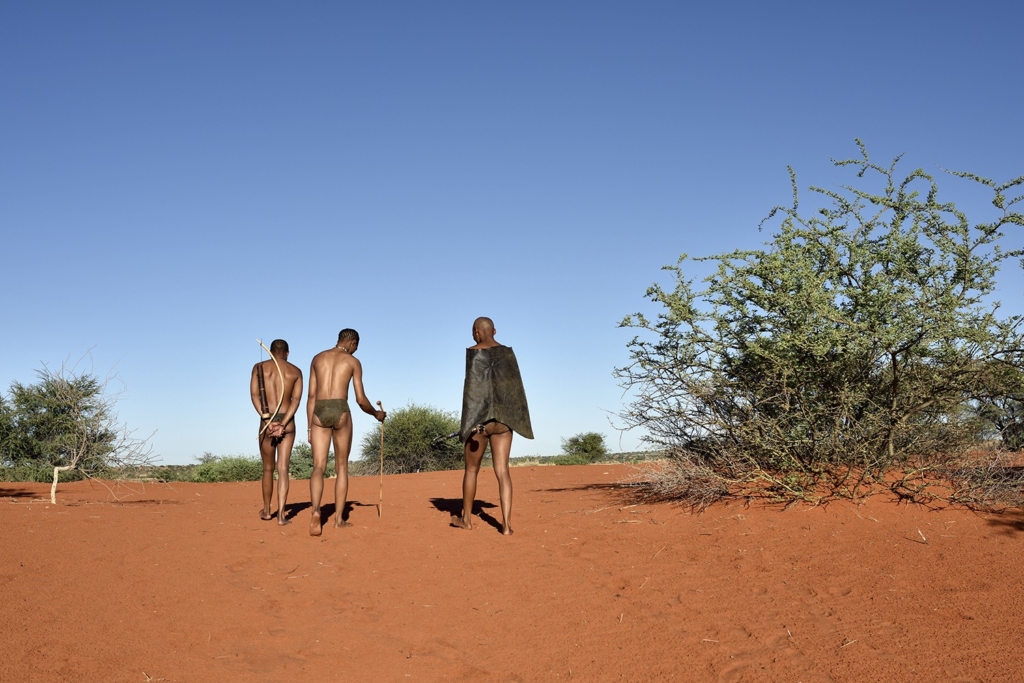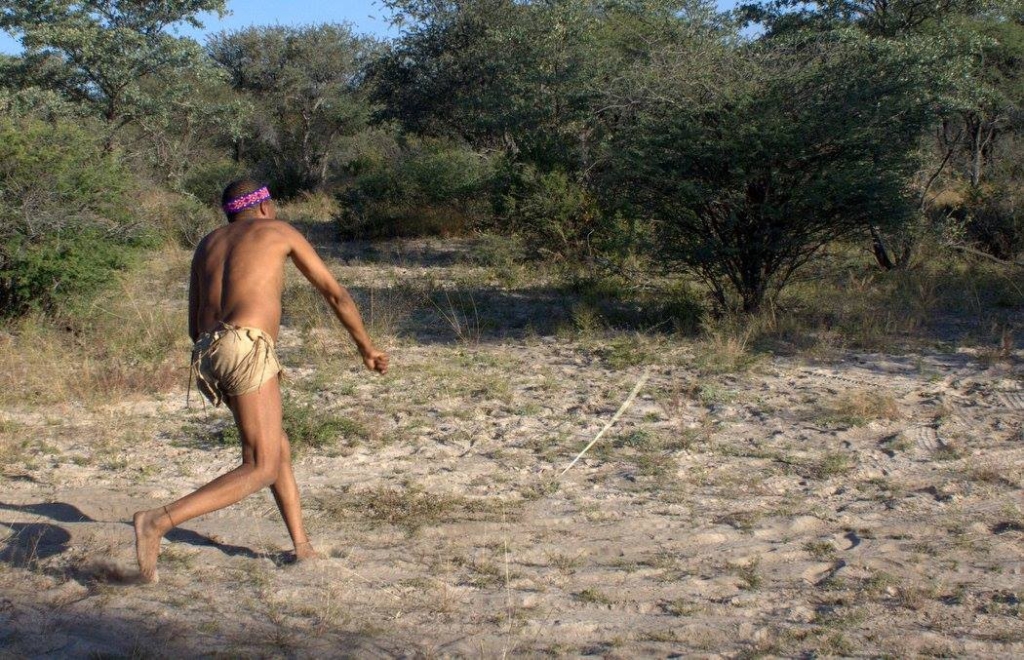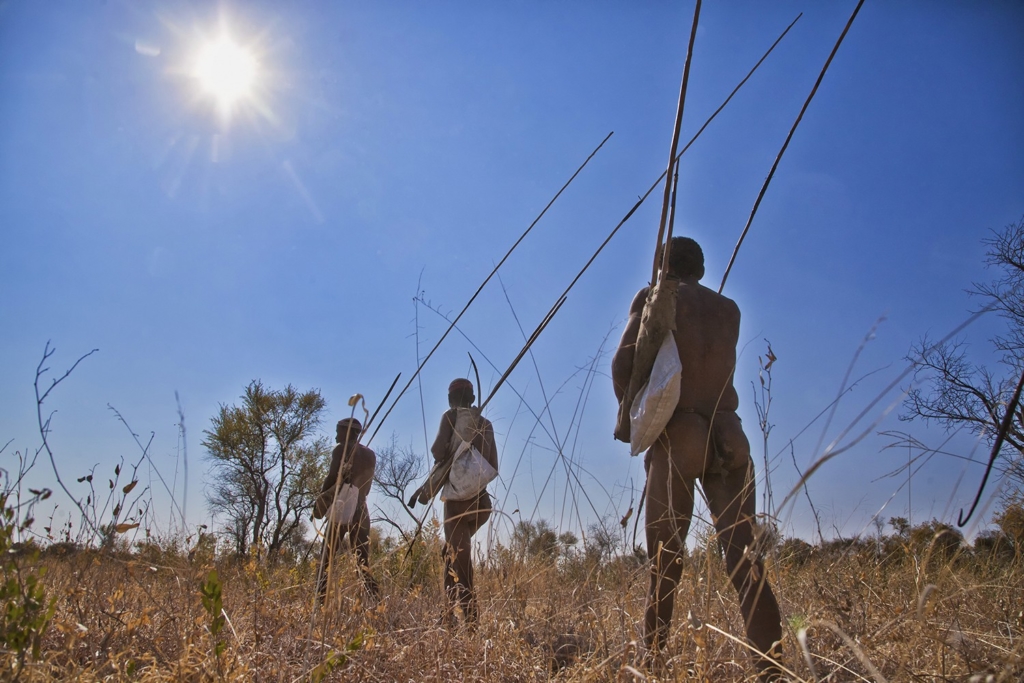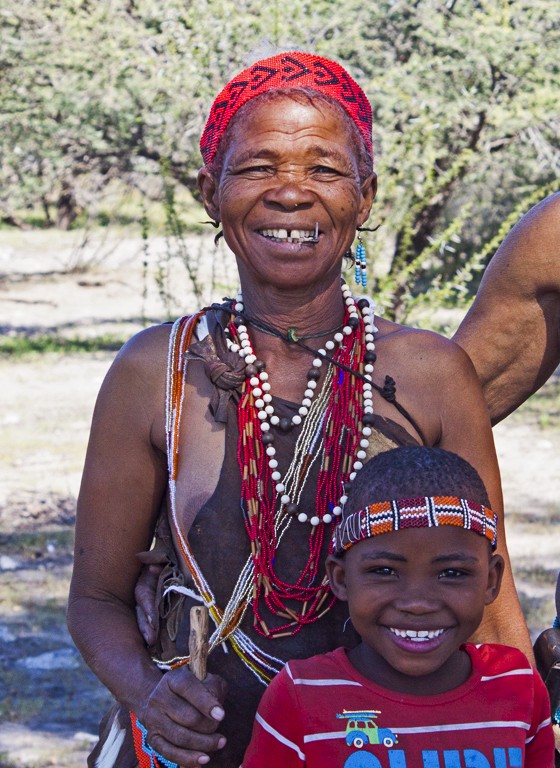The Kalahari Bushmen have survived for 40,000 years. Their home is the vast Kalahari Dessert in Southern Africa, where they have lived peacefully and with joy as hunter/gatherers despite the enormous challenges that face their way of life.
They are renowned, not only for their intimate knowledge of the natural world, but for their profound egalitarian society that has no hierarchical structures, no religion and no possessions. The Bushmen culture is built on sharing, but also forward planning and sustainable living. Their way of life ensures social cohesion and suppression of ones ego, so that love triumphs.

What sets the Bushman apart from modern man is not only their connection to the natural world, but to humanity and inner self.
It is the secrets embedded in their culture that have enabled them to protect the environmental integrity of our planet for more than 40,000 years.
In the light of our current planetary crises it seems there is much modern man learn from these remarkable survivors.
1. Competitiveness, Praise, Ego
For the Bushmen ego is listed as evil and manifests itself as bad temper, aggression, greed, superiority and idleness — all qualities they consider to be khwemkjima’a (man-not-is). For them, human qualities are friendliness, generosity, calmness, wisdom and good humour.
Although they do indulge in games, the aim is not to promote competitiveness and identify winners. Where winner results, it is ensured that no praise is given, only recognition of effort.
Suppression of ego is strictly practiced in many fascinating ways e.g. “insulting the meat”, which prevents a successful hunter from feeling superior.

2. Leadership
There is no leadership structure, other than perhaps a spokesperson when required, and if so, it is ensured that such person “gets no fatter than the rest”.
3. The Natural World and Conservation Beliefs
The Bushmen practiced conservation in every aspect of their daily lives. They believe that there is connectedness between all parts of the natural world and that man has no primacy over any other life. To disrespect and disturb the natural order in the universe is the ultimate sin. They never deplete their natural resources and never waste what the universe provided. This requires population control, population movement and control of appetite to the point of wearing tight belts to alleviate hunger pains when required.
4. Religion and Beliefs
The Bushmen are not religious, but believe in a “Supreme Being/Creator”. Most of their values are shared with Christianity and other religions.
Although certain Bushmen, when exposed to Christianity, comment that Jesus sounds like love, they do not agree with prayer or praise, but are very strong in giving thanks.
They also do not understand how any person can praise or respect a Creator, whilst at the same time destroying what he has created.

5. Money
The Bushmen world has no need for money and their economics involve exchanging presents. Sometimes this involves bartering, but mostly it is an ongoing process of exchange, which serves to extend relationships between individuals, households or bands, hence ensuring social cohesion.
The introduction of money is destroying their culture and the fabric of their society as it has destroyed ours.

6. Love, Contentment, Happiness, Joyousness
Despite how much the Bushmen have suffered at the hands of modern man, and continue to suffer, they are able to display a level of contentment and happiness that few people in the modern world have managed to attain, let alone sustain.
The Bushmen can still provide living evidence of how “less can be more”. Happy children are a result of an upbringing where parents concentrate on providing love, whilst the remainder of the clan teach and instil discipline. The combined efforts of the extended family provide for a sense of belonging, crucial to the happiness of social beings.
Ultimately a combination of being connected to the natural world, to humanity and to the inner self is probably the way man was intended to be before being consumed by ego.
